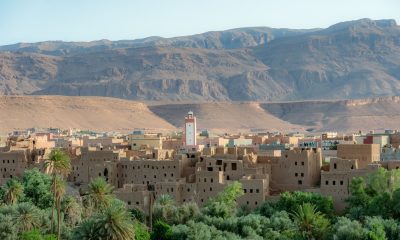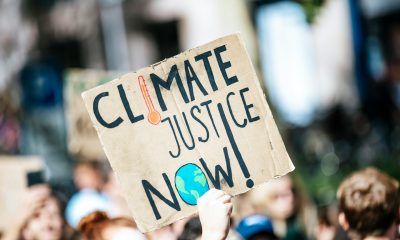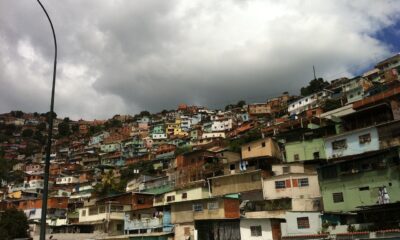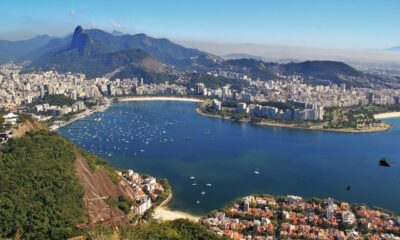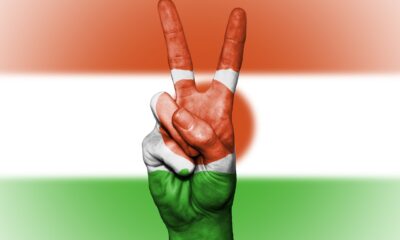Africa
Morocco to receive $3 billion from the IMF to fight the pandemic
Morocco has subscribed since 2012 to the precautionary and liquidity line of the IMF in order to be able to limit the impact of external shocks. Giving the current situation caused by the coronavirus pandemic, Morocco will receive $3 billion from the IMF in an attempt to limit its economic effects on the country. A 1.8% decline in the country’s GDP is expected in the second quarter.
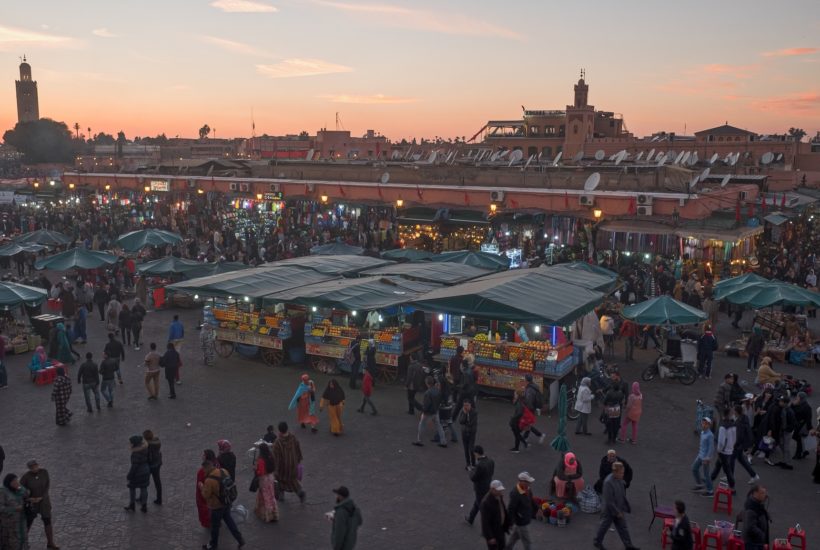
Given the current situation, Morocco will use for the first time the precautionary and liquidity line (LPL) of the International Monetary Fund (IMF). The country will borrow an amount of $3 billion from the IMF. The objective is to deal with the consequences of the coronavirus pandemic.
This unprecedented drawdown is “repayable over five years, with a grace period of three years,” said in a statement the kingdom’s central bank, Bank Al-Maghrib. Its mobilization occurs “within the framework of the agreement under the LPL concluded with the IMF in 2012 and renewed for the third time in December 2018, for a period of two years, with the intention of using it as insurance against extreme shocks,” the bank said.
The LPL is an instrument designed “to provide insurance or help resolve crises in a wide range of situations,” the IMF also said on its website. Meanwhile, Morocco has received a $275 million loan from the World Bank for disaster risk management.
Find out more about Morocco’s economy and the effects of the coronavirus pandemic on the country’s financial stability. Download the Born2Invest mobile app and read the latest economic news from around the world.
The economic impact of the new corona crisis in Morocco
In any case, the International Monetary Fund’s LPL system serves as a guarantee for economically fragile countries to reassure international markets. Beneficiary countries often do not need to activate these sums. The kingdom decided to use it at a time when “the COVID-19 pandemic, of unprecedented magnitude, suggests a global economic recession much deeper than that of 2009”, which will consequently impact the local economy, Bank Al-Maghrib argued.
This recourse “will help mitigate the impact of this crisis on our economy and maintain our foreign exchange reserves at an adequate level.” This sum will be “allocated mainly to finance the balance of payments and will not impact the public debt, which is a first in our financial transactions with the IMF,” the Moroccan institution added.
Mitigating the impact of the crisis
Morocco, which on Wednesday, April 8th, had a total of 1,242 officially reported cases and 91 deaths, has taken drastic measures to limit the spread of COVID-19. At the same time, aid for affected businesses, employees and informal workers has been put in place, through a special fund supplied by public companies and private donations. A draft decree-law adopted on Monday, April 6th, authorizes the government to exceed the limit of external financing provided for in the 2020 finance law in order to ensure its foreign exchange needs.
A key sector of the Moroccan economy, the tourism sector will be greatly affected. This comes at a time when the risk of drought was already worrying the kingdom, which is heavily dependent on its agriculture.
The High Commissioner for Planning (HCP), the Moroccan statistical agency, said on Wednesday, April 8th, it expects a 1.8% decline in GDP in the second quarter, instead of the 2.1% initially forecast before the pandemic. However, the country can count on increasing fruit and vegetable exports as a labor shortage caused by the coronavirus has hit agricultural production in southern Europe.
__
(Featured image by stefan_bernsmann via Pixabay)
DISCLAIMER: This article was written by a third party contributor and does not reflect the opinion of Born2Invest, its management, staff or its associates. Please review our disclaimer for more information.
This article may include forward-looking statements. These forward-looking statements generally are identified by the words “believe,” “project,” “estimate,” “become,” “plan,” “will,” and similar expressions. These forward-looking statements involve known and unknown risks as well as uncertainties, including those discussed in the following cautionary statements and elsewhere in this article and on this site. Although the Company may believe that its expectations are based on reasonable assumptions, the actual results that the Company may achieve may differ materially from any forward-looking statements, which reflect the opinions of the management of the Company only as of the date hereof. Additionally, please make sure to read these important disclosures.
First published in LePoint AFrique, a third-party contributor translated and adapted the article from the original. In case of discrepancy, the original will prevail.
Although we made reasonable efforts to provide accurate translations, some parts may be incorrect. Born2Invest assumes no responsibility for errors, omissions or ambiguities in the translations provided on this website. Any person or entity relying on translated content does so at their own risk. Born2Invest is not responsible for losses caused by such reliance on the accuracy or reliability of translated information. If you wish to report an error or inaccuracy in the translation, we encourage you to contact us.

-

 Crowdfunding1 week ago
Crowdfunding1 week agoFrom Confiscation to Cooperation: Funding Casa de la PAZ’s Social Transformation
-

 Business4 days ago
Business4 days agoWhy the iGaming Industry Offers Some of the Best ROI for Affiliate Marketers
-

 Crowdfunding2 weeks ago
Crowdfunding2 weeks agoDolci Palmisano Issues Its First Minibond of the F&P “Rolling Short term” Program
-

 Africa18 hours ago
Africa18 hours agoBLS Secures 500 Million Dirhams to Drive Morocco’s Next-Gen Logistics Expansion
